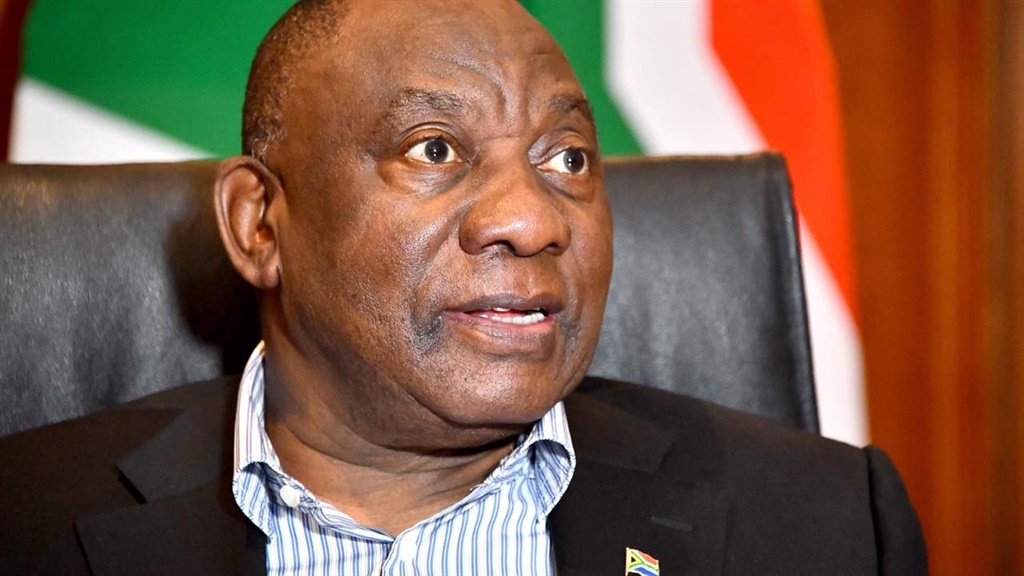News24.com | WRAP | SA stands on 653 444 coronavirus cases and 15 705 deaths as lockdown Level 1 looms


WRAP | ‘We have withstood the coronavirus storm’ – Ramaphosa announces move to lockdown Level 1, but warns country is not out of the woods just yet
There will be a gradual reopening of international travel, a new curfew and an easing of social gathering restrictions as the country shifts down to lockdown Level 1 from midnight on 20 September, President Cyril Ramaphosa has announced.
This will mean a further easing of regulations on social gatherings, as long as the number of people does not exceed 50% the gathering’s venue – but there is a cap of only 250 people for indoor events, and 500 people for outdoor events.
Curfew hours have changed from 00:00 to 04:00. Alcohol can now be sold from Monday to Friday until 17:00. Updated regulations will be published in due course.
Business and leisure international travel will resume from 1 October, but travel may be restricted to and from high-risk countries. Only OR Tambo, King Shaka and Cape Town international airports will be open in the initial phases.
Social distancing and the use of masks in public spaces and during social gatherings are our most effective weapons for limiting the spread of the coronavirus. pic.twitter.com/ZHirmTyFBT
— Presidency | South Africa (@PresidencyZA) September 16, 2020
Ramaphosa said tourist activity will be allowed.
People arriving in the country must produce a negative Covid-19 test result that is no more than 72-hours old. If they do not, they must be quarantined.
The number of people attending funerals can increase to 100, but night vigils are still prohibited. Gyms and theatres may now accommodate up to 50% of their venues’ capacities.
The easing of restrictions on alcohol sales under Level 1 must be done cautiously and responsibly to prevent harm to public health. pic.twitter.com/y2P1iDr863
— Presidency | South Africa (@PresidencyZA) September 16, 2020
Sanitation and mask wearing is still compulsory, as well as physical distancing.
Ramaphosa once again condemned gender-based violence during the lockdown, saying that there are 30 hotspots around the country where the problem is most rife. During Level 1, there will be improved support services in those hotspots.
Although we have managed to control the virus through strict lockdown measures, the threat of a ‘second wave’ of infections remains. Vital precautionary measures must be maintained to prevent a new spike in COVID-19 cases. pic.twitter.com/Onk2bHZzqe
— Presidency | South Africa (@PresidencyZA) September 16, 2020
He also spoke about Covid-19-related corruption, saying progress was being made regarding misuse of funds. The Special Investigating Unit has submitted its first report on the matter to the president. He said all contracts awarded for Covid-19 services and goods will be made public.
’New normal’
The president addressed the nation on Wednesday night – exactly six months after the lockdown came into effect – after holding meetings with the National Coronavirus Command Council (NCCC) and holding a special sitting of Cabinet.
There has been much speculation over the past week that there would be changes to the lockdown regulations, with Ramaphosa having last week hinted during a Q&A with journalists that a move to Level 1 lockdown was on the cards.
Ramaphosa says this alert level will be the “new normal” which will remain until the Covid-19 pandemic passes.
The country shifted to Level 2 almost a month ago to the day.
Ramaphosa said that the government’s economy recovery plan will be communicated soon, adding that some R30 billion has been paid out in social relief to people during this time. Around R42 billion has been paid out in wage support to workers. He said the solidarity fund has received about 3 000 donations.
The coronavirus pandemic has also caused hardship for many South Africans and their businesses. Government has provided a range of social and economic relief measures to help those affected. pic.twitter.com/nfkZ0oMxWY
— Presidency | South Africa (@PresidencyZA) September 16, 2020
Ramaphosa announced that there will be increased testing as well as increased contact tracing to ensure the country gets a firmer grip on potential outbreaks. He encouraged the public to download the government’s Covid-19 app, which will alert them if they have come into contact with people who have been infected.
Second wave
He said the government will undertake a nationwide survey to estimate the extent of asymptomatic infections, by testing for Covid-19 antibodies.
Ramaphosa said the infection rate was seen to have significantly slowed down recently. He said just two months ago there were increases of about 12 000 cases a day, compared to about 2 000 now. He said the recovery rate, currently at 89%, could yet increase going forward. He said there has been a “gradual decline” in infections and hospitalisations.
Widespread testing and screening for the virus, as well as contributing to the development of a vaccine, form an important part of government’s COVID-19 response. pic.twitter.com/aFSxpDdhOt
— Presidency | South Africa (@PresidencyZA) September 16, 2020
The president said the plan was now to ensure the country circumvents a “second wave” of infections, as has been seen in other countries, saying that some countries have seen a more severe problem during the second wave.
He said the country was also planning for when a vaccine is finally manufactured, saying that South Africa was working alongside the WHO to pull resources and support vaccine development, as well as accessing vaccines at a reasonable cost once available.
Ramaphosa said the economy and society has suffered during the pandemic, but citizens have remained resolute.
“We cannot afford a resurgence of infections, a second wave would be devastating. It is up to each and every one of us to ensure that this does not happen. As we settle into a new normal… we must continue to exercise every possible precaution to prevent infecting others.”
On a parting note, Ramaphosa encouraged the country to celebrate Heritage Month with the Jerusalema challenge.
– Compiled by Kerushun Pillay